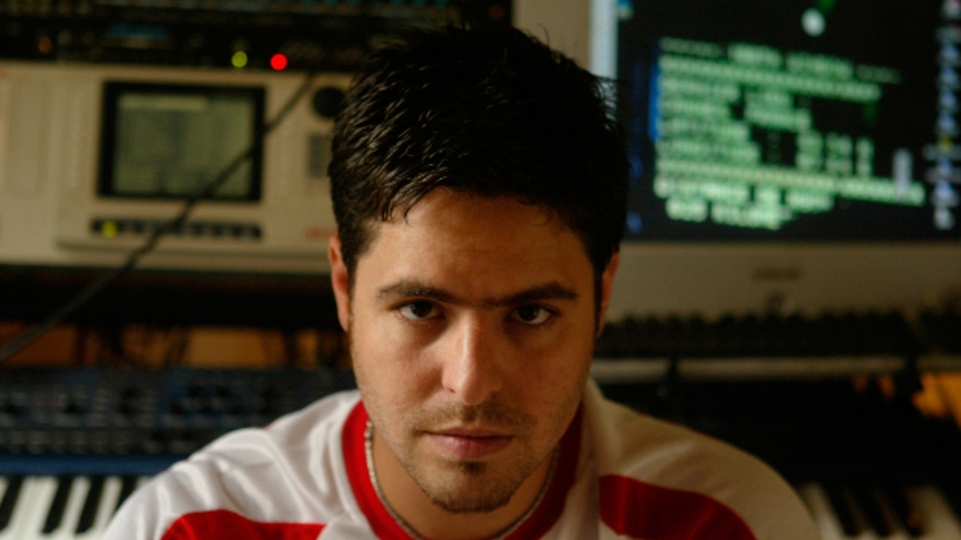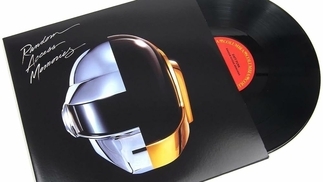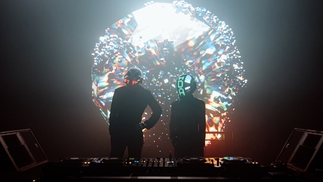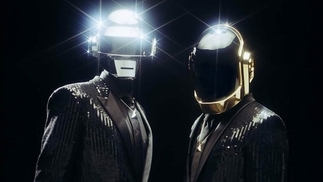GUI BORATTO: EXOTIC DISCOURSE
Having just cooked up his fourth studio album, ‘Abaporu,’ we get a choice serving of the man behind the music...

“We choose to go. We choose to stay. We stick together. We vote. We can stand, we can fight, or we can go.” A speech from zombie drama The Walking Dead may seem an unlikely source of inspiration for an electronic musician, but for Brazil’s Gui Boratto it provided a perfect hook to 2013’s chugging electro-rock anthem, “We Can Go.”
The catchy quote’s clipped phrasing not only fit the song’s marching beat, it also conveniently echoed the outspoken Sao Paolo producer’s political views – which he outlines when we speak to call to speak about his latest album, Abaporu.
“I’m a huge fan [of the show]. But in this case, I used the phrase for a political issue. We are about to go for elections and we are suffering so much with this horrible mandate of [capitalist-friendly socialist] Dilma [Rousseff] – the worst president in decades. She's really destroying our beautiful country. So, we must fight or go. I prefer to fight, of course.” And fight he has. Reflecting on his history of activism, the DJ-producer, who is as at home protesting in the streets as he is recording in the studio, has said unapologetically, “I think after years of corruption, the uprising was necessary...we need to claim our rights.”

BRAZILIAN MODERNISM
Given how passionately Boratto rhapsodizes about his beautiful, volatile country, it’s not surprising that Brazil and one of its greatest visual artists serve as muses for his fourth album, Abaporu, out September 29 via Cologne powerhouse, Kompakt, Gui's longtime home away from home. An indigenous term translated as “man eats,” Abaporu’s title and cover art pay homage to Brazilian modernist Tarsila Do Amaral’s famous painting - a brightly-hued nude with elongated limbs sitting by a cactus under a shining sun. Its green and yellow colors invoke the country’s flag, the figure’s languorous pose and exaggerated contours a psychotropic tropicalia long associated with Brazil. Interested in this intersection of European and native identity, as many Latin American artists are, Amaral credits her life in 1920s Paris with reconnecting to her heritage. "What they want here is that each one brings the contribution of his own country... Paris had had enough of Parisian art.”
Playfully, Gui suggests a connection between his approach to music and Amaral’s to painting, “the possibility to put all your references in a pan, and cook them...and of course, eat them” he ethuses, as obsessed with food as he is music these days. “Brazilian ingredients are the last frontier in the food universe. We have amazing chefs like Alex Atala, Benny Novak, Helena Rizzo, Alberto Landgraf. That's my next biggest interest. I've been traveling so much, and food was always my priority. I've been experiencing the most incredible restaurants in the world. Not only fancy and expensive ones, but small markets, little cheap restaurants.” Circling back to how this appetite informs his music, Gui says of the title track: “This song reflects and synthesizes the creation process of the album. That's why it's called ‘Abaporu.’ It's not the highlight, not the best, but the one that expresses the whole concept of the album.”
THE GUI BORATTO SOUND
It’s an apt analogy for the album, which tosses together all of the house and techno ingredients he’s explored over the years. “Eight years after the release of my first album [2007’s] Chromophobia, I’m very glad with what I’ve done: four albums under my belt, and some nice singles and remixes. I’m a musician and I’m always concerned about music for the ears, not just for the dancefloors. I’m very happy with Abaporu.” At 13 tracks (14 on digital), Abaporu covers a wide range of sounds, the album a year in the making due to Boratto's demanding touring and production schedule. “I don’t have a formula,” he says, “I try to follow the central idea of the music or composition’s needs. I believe the music talks to you when you're creating it. It's a supernatural process without trying and forcing to sound it like this or that. After all these years, I’ve created my own sound, like a style or signature. People already recognize the typical Gui Boratto sound.”
The Gui Boratto sound, honed by years of producing chart-topping hits for international pop stars before striking out on his own, has included the effusive tech-house of Chromophobia and its ecstatic single, “Beautiful Life”; its uneven rehash on 2009’s Take My Breath Away; the dark, rumbling brutalism of 2011’s III; and the industrial disco bubbling under 2013’s “Too Late” EP, featuring the politically-charged flip side “We Can Go.” It’s perhaps a simplistic estimation of his evolution, but one Boratto humbly and generously allows – with a caveat. “I have to say that Take My Breath Away is a sort of a continuation of Chromophobia and III is my rock and roll vein. It's serious and strong. After producing other things, between other artists, singles and lots of traveling, I did ‘We Can Go’ and ‘Too Late.’”
Among the other artists who have sought out Boratto’s touch are the Pet Shop Boys, Goldfrapp and 1988 “Beat Dis” plunderphonic legend Bomb the Bass (Tim Simenon), with whom he collaborated on two albums. Bomb the Bass’s return to an electro/new wave sound synced perfectly with Boratto’s style and resulted in Gui doing a couple of remixes for 2008’s Future Chaos and producing all of 2010’s Back to Light. “I love what Tim did in the past,” Gui says, “not only Into The Dragon but also his productions for Björk [‘Play Dead’] and Depeche Mode [Ultra]. It was nice when he spent two weeks with me, in my house to produce [Back to Light].”
D.O.C.
Turning his attention back to his home turf, Boratto has recently produced the debut album for fellow Brazilian electronic rock act, Elekfantz. “I adore what they do. And they are part of my label D.O.C.” In keeping with Gui’s gastronomic infatuation, D.O.C. (distributed by Kompakt) is named after Brazil’s food monitoring agency, the Denominazione di Origene Conttrolata. Elekfantz, a duo featuring a singing drummer and a DJ-producer with whom Gui has been longtime friends, are his inaugural signing to D.O.C., whose mission is to release music that approaches house and techno differently. “I'm talking about melodies, vocals, lyrics, recorded instruments.” All of these moods and ideas find their way into Abaporu in songs like “Please Don’t Take Me Home,” “Get the Party Started,” “Take Control” and “Wait for Me.” “I think this is my best album,” he states. “It contains many facets of my style.”
“Please Don’t Take Me Home” builds an incandescent groove from a funky, jangly guitar riff that Boratto played himself. “You know, my guitars are really funky or tremolo. I love vibratos and a little drive as well. But they all sound very simple. Just a few notes that can do the right job.” The song also features two vocalists who are close to Gui, a symptom of chronic loyalty in his work. “The guy’s name is Rod Rossi. He's the singer of my first band when I was 13, 14 years old, and also a good friend of mine. [He and my wife Luciana] sing together on this. I loved the combination of both.” Luciana, who provided the infectious hook on “Beautiful Life” and the melancholy refrain to “Too Late,” is a frequent collaborator, often singing on Gui’s music when she’s not acting as its de facto in-house critic.
“Get the Party Started,” appropriately enough, cranks up the disco vibe with shades of French Touch house, replacing the genre’s familiar filtered samples with more live riffs. Debunking any connection to Daft Punk, Nile Rodgers or their collaboration, Boratto explains, “Actually I've been doing funky guitar licks for awhile. I really did not try to sound like him [Rodgers], especially since he's a genius. I just put some funky guitars on top of the song. That's what the song demanded me to do.” Crediting its proper inspiration, he adds, “It started with a little reference to [1980’s UK R&B act] Imagination, one of my favorite bands. Remember ‘Music and Lights’? This is the hook. Then I decided to go in other directions and I really loved the broken beats combined with the funky guitar and the central Imagination idea.”
One of the album’s most pop radio-leaning numbers, “Wait for Me,” was ironically recorded nowhere near a radio. “I don’t know why, but I did that [song] while I was in the forest, after setting up my new studio in my house in the country. I wasn’t trying to sound pop. But I’m very happy to hear that I achieved that.” It’s also one of the few songs on which you’ll hear Gui’s own vocals. “I’m the singer,” he laughs. “I did just a guide so Luciana could sing and replace my terrible voice. But in the end my voice fit better then Lu's voice.”
Among the tracks more in line with Boratto’s brooding III, are “Take Control,” which has a classic Kompakt sound, comprising rubbery pings, mechanical precision, a Peter Hook-like groove and dark new wave vocals. “This one started with [Brasilia DJs] João Komka and Mari from Come and Hell. I fell in love with the central idea and I just have a special love for this one.”
Boratto’s special love for things – food, music, architecture, design, Brazil – and his ability to fuse them have been good for the ad exec turned DJ, producer and label founder. His philosophy has yielded a unique discography that explores exoticism, an outspoken but affable persona that stands out in a flashy and superficial industry, and, most impressively, mainstream success without compromising his auteur cachet. This steady, mostly upward trajectory has resulted in more “Beautiful Life” jokes than Gui cares to count, particularly since he has repeatedly vocalized pointed political views to counter the notion that the foodie, activist and family man spends his days by the pool and his nights in VIP rooms.
Brazil has always occupied a special, if fetishized, place in global pop culture. As millions of record-breaking 2014 World Cup viewers can attest, despite an extensive history of turmoil and widespread protests against longstanding social inequalities, the mere mention of Brazil still conjures up cliché fantasias: beaches, sunsets, Christ the Redeemer, Amazons, the Girl from Ipanema, Gisele, Adriana... the list could go on. It’s a seductive narrative unlikely to change anytime soon, however many global events it hosts in the midst of internal upheaval. Thanks to artists like Gui Boratto, this traditionally one-sided discovery experience is becoming more of a nuanced and mutual exchange.
Asked if he thinks it’s still possible for anything to be truly “exotic” in our digitally connected 24/7 world anymore, he answers emphatically, “Of course! If it's honest and true, why not?”
WORDS: JORGE HERNANDEZ





